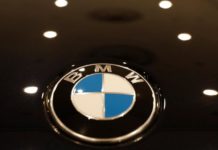Germany explores curbing diesel emissions without hitting car makers
Germany’s government and auto companies are under pressure to cut pollution caused by the auto industry – a lucrative sector with an annual turnover of over $400 billion.
German ministers and car executives will meet on Wednesday to try to find ways to cut diesel emissions and stave off moves by some cities to ban polluting vehicles.
Since Volkswagen admitted to cheating US diesel emissions tests in September 2015, the German government has come under fire for not doing enough to crack down on vehicle pollution and for being too close to the country’s powerful auto industry – a sector with an annual turnover of over $400 billion.
A German court on Friday backed an effort to ban diesel cars from Stuttgart, dealing a blow to car makers such as Daimler and Volkswagen which sought to avert legal curbs by modifying vehicles to cut their emissions.
“I can say that the meeting’s purpose is of course for politicians to make clear to the car industry what the expectations are,” German government spokesperson Ulrike Demmer said.
“One focus will be the question which manipulations existed and how the industry plans to compensate for the damage caused. There were nitrogen oxide problems in 28 cities and the question will be what the industry has on offer on that subject.”
TRT World’s Abubakr al Shamahi has more.
Government keen on action
With national elections less than eight weeks away, and environmental groups making progress in the courts, the government is keen to show it is taking action.
But ministers are also wary of damaging an industry that is a major source of export income and provides about 800,000 jobs.
Industry and government sources said on Tuesday that the car makers would probably be spared making costly hardware changes to engines and would instead be required to carry out software updates to around 2 million vehicles.
Whether that will be enough to revive diesel vehicle sales or stop bans – like one planned for Stuttgart that was confirmed by a regional court last week – is another matter.
“Software updates are better than nothing, but I have doubts this deal will persuade people to start buying diesels again,” said Stefan Bratzel, head of the Centre of Automotive Management think-tank near Cologne.
Volkswagen’s (VW) emissions crisis led to a string of revelations that showed diesel vehicles from most manufacturers release far more toxic nitrogen oxides (NOx) on the road than in laboratory tests used to assess their safety.
That has hit sales of diesel vehicles in Germany, with buyers worried about potential driving restrictions, causing a big headache for car makers that were betting on diesel technology to meet rules on lowering carbon dioxide emissions.
 Demonstrators protest against pollution from diesel vehicles in front of the Transport ministry in Berlin, Germany. June 27, 2017. (Reuters)
Demonstrators protest against pollution from diesel vehicles in front of the Transport ministry in Berlin, Germany. June 27, 2017. (Reuters)
High stakes
There are around 15 million diesel cars on Germany’s roads, which contribute around 40 percent to NOx pollution in major cities, according to the DUH environmental lobby.
The stakes have increased in recent weeks.
Britain and France have turned up the pressure on Berlin by announcing plans to eventually ban all diesel and petrol vehicles, while top German car makers BMW, Daimler, Audi, Porsche, and VW are being investigated by European regulators for alleged anti-competitive collusion.
“The car industry is wrapped up in a prolonged crisis of confidence,” Bratzel said.
“It’s high time for automakers to make a contribution to get out of this mess.”










